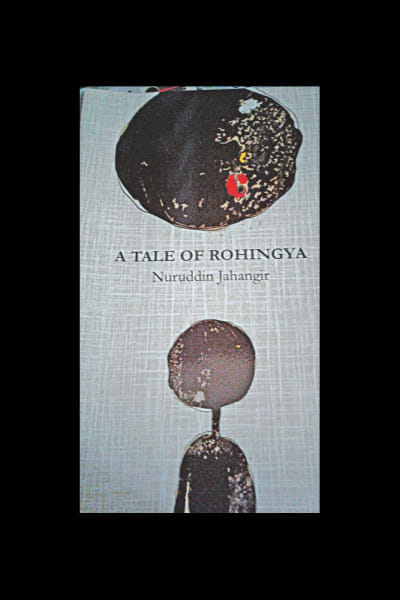A Tale of Rohingya: A Take on Dislocation and Displacement

The life of refugee people has always been difficult, and in the current world it has taken on a monstrous form across borders. Nuruddin Jahangir's A Tale of Rohingya is a novella set in the background of the ongoing problem that is created in the South-East region of Bangladesh by the arrival of the huge number of refugees from the neighbouring Myanmar. The protagonist of the novel, Solomon is an absconding Rohingya in Bangladesh who had successfully hidden his identity and grew up with a Bangladeshi foster-family. He had to flee his motherland and family in order to have education and a proper life and in the process lost contact with his family. The pain and struggle the protagonist goes through is not the story of one man but the tale of the entire Rohingya people, as well as a narrative of refugees all over the world.
The author maintains a lucid storyline while following Solomon's thoughts as he works with an international organization that helps to stabilize the influx of refugees from Myanmar and assists the Bangladeshi government to maintain law and order in the Rohingya refugee shelters. The novella reflects its author's in-depth knowledge about the Rohingya community, and not just some romantically inclined problems faced by a destitute people. While working with the project, a romance blossoms between Solomon and Rubina, his co-worker. Unlike Solomon who has already seen the darker side of life, Rubina is compassionate, poetic and eager to help. She reprimands people around her whenever she sees injustice. Through the problems encountered by the duo, Jahangir elaborates various levels of practical problems that surface in the process of helping a refugee community.
There is indeed a high ideal behind helping a destitute people, but there is much bureaucracy in the process too. The Rohingya people themselves are problematic as they have been shuttered away in superstition and barbaric activities. They follow their own chain of ideals and butt head with the rules of the refugee camps every hour. Each page of the book elucidates that there is no longtime solution for the Rohingyas in Bangladesh; they must go back to their homeland. They are constantly dragged into illegal activities including drugs and prostitution. The novel is indeed a commendable effort by the author.
A Tale of Rohingya is not a translation but a novel written in English by Nuruddin Jahangir himself. Much care has been given to the designing and bounding of the book. The front page of the slim volume is designed by Nirzhar Noishabdya, giving the book a somber appearance reflecting the grave matters bound within the soft covering. Having said all that, I should also point out that this book has some issues with language. However, much of the problem could have been reduced with careful revision and editing. When the author chooses to reprint the book, perhaps he should take it under serious consideration.
Sohana Manzoor is Assistant Professor, Department of English & Humanities, ULAB. She is also the Deputy Editor of the Star Literature and Reviews Pages.

 For all latest news, follow The Daily Star's Google News channel.
For all latest news, follow The Daily Star's Google News channel. 



Comments